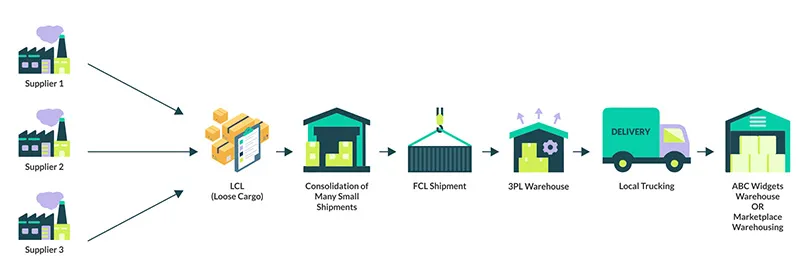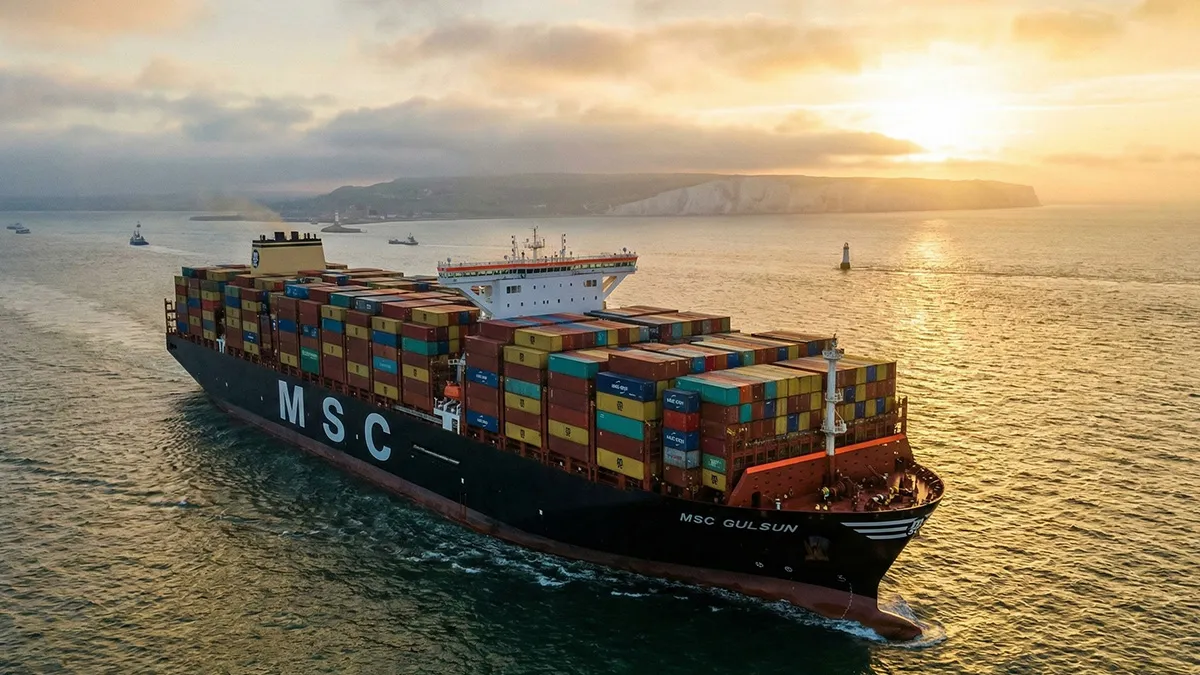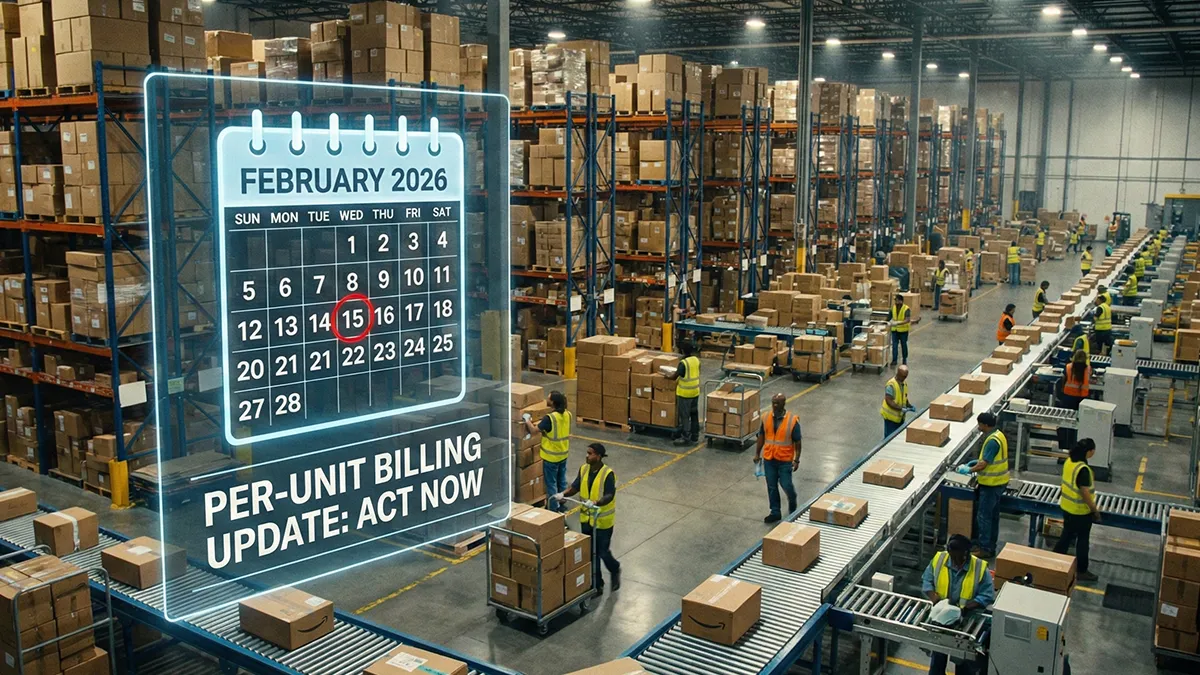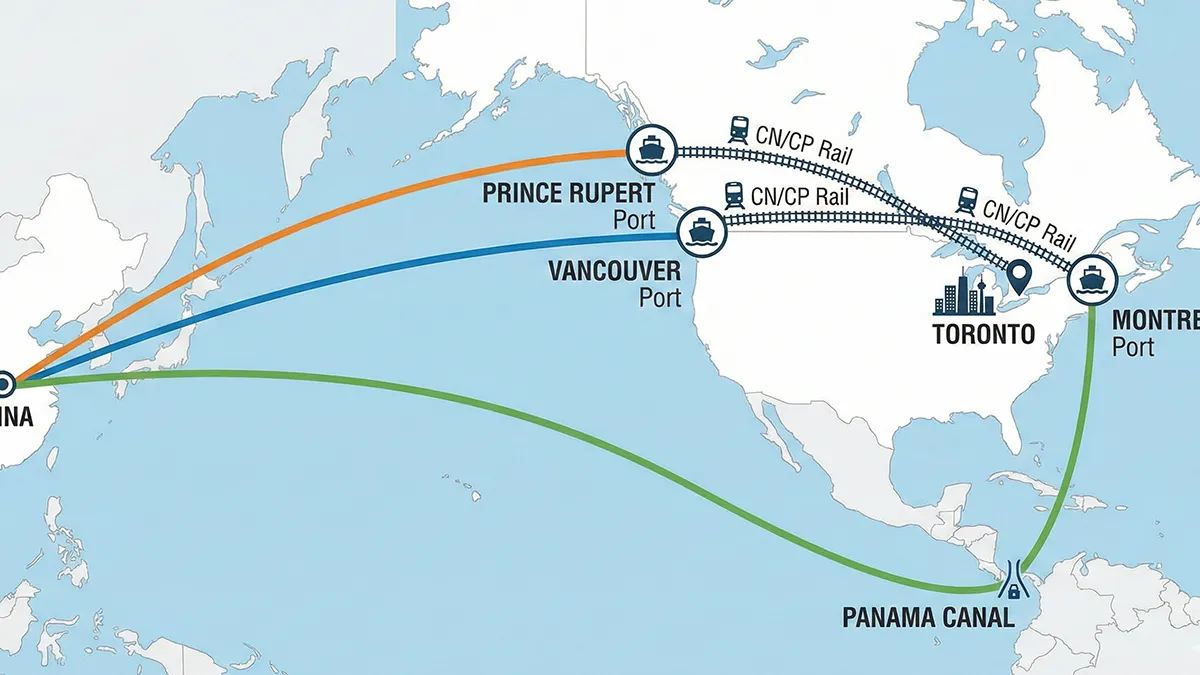What Is Freight Consolidation and How It Can Benefit Your Business?

Introduction
At Zbao Logistics, we understand that managing high freight costs is one of the biggest challenges for global importers and e-commerce sellers. One proven solution is freight consolidation — a logistics strategy that combines multiple smaller shipments into a single, cost-efficient container.
Think of it as carpooling for cargo: several suppliers share the same container space, dramatically lowering costs while improving efficiency and sustainability. In this guide, we’ll explain what freight consolidation is, how it works, and why partnering with an expert like Zbao Logistics can make all the difference.
What Is Freight Consolidation?
Freight consolidation (also known as cargo consolidation) is the process of combining multiple small shipments—often Less-than-Container-Load (LCL)—from different exporters into one Full-Container-Load (FCL). This allows multiple businesses to share space, reduce waste, and cut shipping costs.
As a certified FMC, WIFFA, and Amazon SPN freight forwarder, Zbao Logistics offers fully managed consolidation services from China to North America and Europe, using our own warehouses, customs teams, and trucking fleet.
Learn more about the definition from Investopedia.
Why Freight Consolidation Matters
| Key Factor | Business Impact | Zbao Advantage |
|---|---|---|
| Cost Efficiency | Share container costs, save up to 30% on freight | Access to OA shipping alliance rate discounts |
| Fewer Delays | Streamlined scheduling and fewer handoffs | Control over our own consolidation boxes |
| Better Security | Less handling = reduced theft and damage risk | Consolidation within Zbao’s secure facilities |
| Simplified Management | One Bill of Lading, one shipment to track | End-to-end visibility through digital platform |
| Sustainability | Fewer, fuller containers = lower carbon footprint | Route optimization and green packaging |
According to Statista logistics data, companies that use freight consolidation strategies cut transportation costs by 18–30% and improve overall supply chain efficiency.
How Freight Consolidation Works
Zbao Logistics provides full-service coordination from supplier pickup to final delivery.
-
Pickup & Supplier Coordination – We collect goods from multiple suppliers across China (Shenzhen, Ningbo, Shanghai, etc.).
-
Warehouse Consolidation – Our origin warehouse merges LCL cargo into one container under a single Bill of Lading.
-
Export & Customs – Our compliance team handles export declarations and documentation.
-
Ocean or Air Transport – Cargo moves via sea (LCL/FCL), air, or multimodal routes.
-
Customs Clearance in the US – Our own licensed brokerage ensures smooth clearance at ports like Los Angeles or New York.
-
De-consolidation & Last-Mile Delivery – Our U.S. trucking network delivers split shipments directly to final destinations or Amazon FBA warehouses.
Real-World Example: Consolidation in Action
Let’s look at Global Gadgets, a U.S. e-commerce retailer sourcing from three Shenzhen suppliers:
| Supplier | Cargo Volume | Cost if Shipped Separately | Cost with Zbao Consolidation |
|---|---|---|---|
| A | 5 CBM | $1,200 | Shared |
| B | 3 CBM | $900 | Shared |
| C | 4 CBM | $1,000 | Shared |
| Total | 12 CBM | $3,100+ | $2,200 (-29%) |
By consolidating shipments at our Shenzhen warehouse, Global Gadgets saved nearly $900 and reduced customs paperwork from three entries to one.
Seven Common Freight Consolidation Methods
| Method | Description | Ideal For |
|---|---|---|
| Ocean LCL Consolidation | Combine small sea shipments into one full container. | Regular exporters to U.S. ports |
| Air Freight Consolidation | Bundle multiple clients’ air cargo for lower rates. | High-value or urgent goods |
| Ground LTL/FTL Consolidation | Merge domestic truckloads at our North America hubs. | U.S./Canada delivery |
| Buyer’s Consolidation | Combine orders from multiple suppliers under one Bill of Lading. | Large importers managing many factories |
| Multi-Stop Truckload | Collect from several suppliers on one route. | Domestic distribution |
| FBA Order Consolidation | Merge Amazon sellers’ inventory for compliance shipments. | Amazon FBA sellers |
| Transloading & Re-Consolidation | Shift cargo from containers to 53’ trucks to avoid port delays. | Time-sensitive e-commerce cargo |
Overcoming Common Challenges
| Challenge | Risk Without Expert Partner | How Zbao Logistics Solves It |
|---|---|---|
| Complex Coordination | Missed vessel cut-offs, miscommunication between suppliers | 20+ years experience coordinating global suppliers |
| Customs Delays | Incomplete paperwork or incorrect HS codes | In-house customs brokerage in North America |
| Cargo Compatibility | Mixing incompatible goods (e.g., liquids with fabrics) | Strict packing and cargo-type screening |
| Lack of Visibility | Unclear tracking for multi-supplier shipments | End-to-end digital tracking system |
| De-consolidation Delays | Port congestion and handling bottlenecks | Owned trucking assets for faster final delivery |
Sustainability and Green Shipping
We take sustainability seriously. By optimizing routes, maximizing container fill, and using recyclable packaging, we help reduce overall emissions.
This approach aligns with the World Economic Forum’s Sustainable Supply Chain Initiative, supporting our clients’ ESG and green-logistics goals.
FAQs: Freight Consolidation
Q1: What’s the difference between LCL and freight consolidation?
LCL is any shipment smaller than a full container; consolidation is the process of combining multiple LCL shipments into one managed FCL for better control and pricing.
Q2: How long does freight consolidation take?
Consolidation at our China warehouse typically takes 1–2 days, with total transit similar to standard FCL.
Q3: Is freight consolidation suitable for Amazon FBA sellers?
Absolutely. It’s one of the best ways for FBA sellers to meet inbound requirements and reduce per-unit shipping costs.
Q4: Can Zbao Logistics handle both consolidation and final delivery?
Yes. We manage the full chain — pickup, consolidation, export, customs clearance, and U.S. trucking delivery.
Conclusion
Freight consolidation is not just a cost-saving tactic — it’s a strategic advantage in modern supply chains.
By partnering with Zbao Logistics, you gain a team with 20+ years of experience, FMC and WIFFA certifications, and our own customs and trucking network across China and North America.
We design consolidation plans that cut costs, reduce transit times, and simplify your logistics workflow.
👉 Contact Zbao Logistics today for a customized freight consolidation solution and start saving up to 30% on your China-to-USA shipping.


